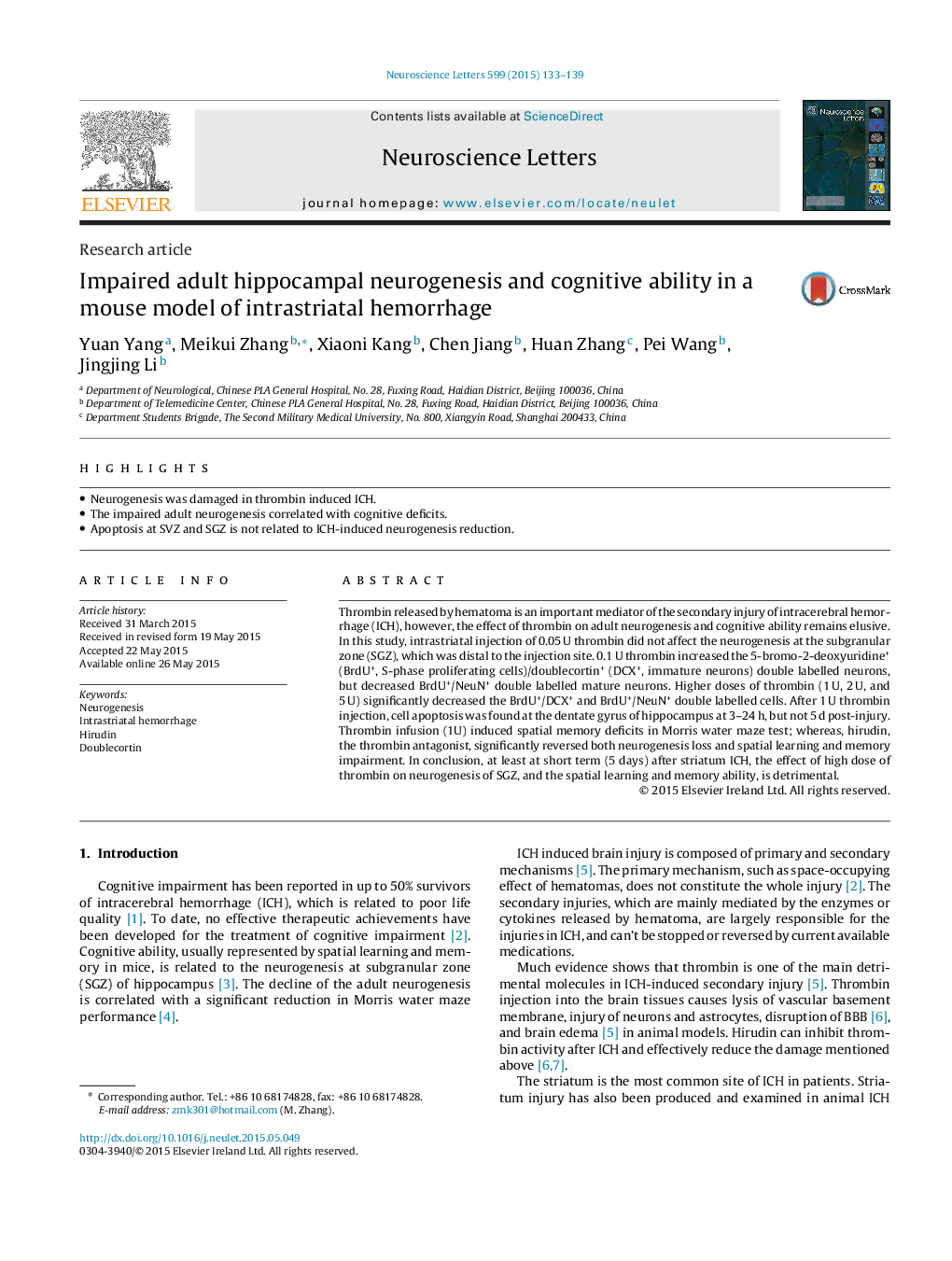| Article ID | Journal | Published Year | Pages | File Type |
|---|---|---|---|---|
| 4343444 | Neuroscience Letters | 2015 | 7 Pages |
•Neurogenesis was damaged in thrombin induced ICH.•The impaired adult neurogenesis correlated with cognitive deficits.•Apoptosis at SVZ and SGZ is not related to ICH-induced neurogenesis reduction.
Thrombin released by hematoma is an important mediator of the secondary injury of intracerebral hemorrhage (ICH), however, the effect of thrombin on adult neurogenesis and cognitive ability remains elusive. In this study, intrastriatal injection of 0.05 U thrombin didn't affect the neurogenesis at the subgranular zone (SGZ), which was distal to the injection site. 0.1 U thrombin increased the 5-bromo-2-deoxyuridine+ (BrdU+, S-phase proliferating cells)/doublecortin+ (DCX+, immature neurons) double labelled neurons, but decreased BrdU+/NeuN+ double labelled mature neurons. Higher doses of thrombin (1 U, 2 U, and 5 U) significantly decreased the BrdU+/DCX+ and BrdU+/NeuN+ double labelled cells. After 1 U thrombin injection, cell apoptosis was found at the dentate gyrus of hippocampus at 3–24 h, but not 5 d post-injury. Thrombin infusion (1U) induced spatial memory deficits in Morris water maze test; whereas, hirudin, the thrombin antagonist, significantly reversed both neurogenesis loss and spatial learning and memory impairment. In conclusion, at least at short term (5 days) after striatum ICH, the effect of high dose of thrombin on neurogenesis of SGZ, and the spatial learning and memory ability, is detrimental.
